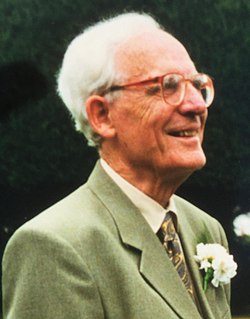A Quote by John Dryden
When we view elevated ideas of Nature, the result of that view is admiration, which is always the cause of pleasure.
Related Quotes
He, who, in view of its inconsistencies, says of human nature the same that, in view of its contrasts, is said of the divine nature, that it is past finding out, thereby evinces a better appreciation of it than he who, by always representing it in a clear light, leaves it to be inferred that he clearly knows all about it.
Whenever we feel that we are definitely right, so much so that we refuse to open up to anything or anybody else, right there we are wrong. It becomes wrong view. When suffering arises, where does it arise from? The cause is wrong view, the fruit of that being suffering. If it was right view it wouldn't cause suffering.
Books of natural history aim commonly to be hasty schedules, or inventories of God's property, by some clerk. They do not in the least teach the divine view of nature, but the popular view, or rather the popular method of studying nature, and make haste to conduct the persevering pupil only into that dilemma where the professors always dwell.
There is no longer a Christian mind ... the modern Christian has succumbed to secularization. He accepts religion - its morality, its worship, its spiritual culture; but he rejects the religious view of life, the view which sets all earthly issues within the context of the eternal, the view which relates all human problems social, political, cultural to the doctrinal foundations of the Christian Faith, the view which sees all things here below in terms of God's supremacy and earth's transitoriness, in terms of Heaven and Hell.
But every point of view is a point of blindness: it incapacitates us for every other point of view. From a certain point of view, the room in which I write has no door. I turn around. Now I see the door, but the room has no window. I look up. From this point of view, the room has no floor. I look down; it has no ceiling. By avoiding particular points of view we are able to have an intuition of the whole. The ideal for a Christian is to become holy, a word which derives from “whole.
My main professional interest during the 1970s has been in the dramatic change of concepts and ideas that has occurred in physics during the first three decades of the century, and that is still being elaborated in our current theories of matter. The new concepts in physics have brought about a profound change in our world view; from the mechanistic conception of Descartes and Newton to a holistic and ecological view, a view which I have found to be similar to the views of mystics of all ages and traditions.
[T]he more clamour we make about 'the women's point of view', the more we rub it into people that the women's point of view is different, and frankly I do not think it is -- at least in my job. The line I always want to take is, that there is the 'point of view' of the reasonably enlightened human brain, and that this is the aspect of the matter which I am best fitted to uphold.
In the biblical worldview, the purpose of all creation is to benefit man. This anthropocentric view of nature, and indeed of the whole universe, is completely at odds with the current secular idealization of nature. This secular view posits that nature has its own intrinsic meaning and purpose, independent of man.
How shall we define occultism? The word is derived from the Latin occultus, hidden; so that it is the study of the hidden laws of nature. Since all the great laws of nature are in fact working in the invisible world far more than in the visible, occultism involves the acceptance of a much wider view of nature than that which is ordinarily taken. The occultist, then, is a man who studies all the laws of nature that he can reach or of which he can hear, and as a result of his study he identifies himself with these laws and devotes his life to the service of evolution.
It is only because the majority opinion will always be opposed by some that our knowledge and understanding progress. In the process by which opinion is formed, it is very probable that, by the time any view becomes a majority view, it is no longer the best view: somebody will already have advanced beyond the point which the majority have reached. It is because we do not yet know which of the many competing new opinions will prove itself the best that we wait until it has gained sufficient support.






































